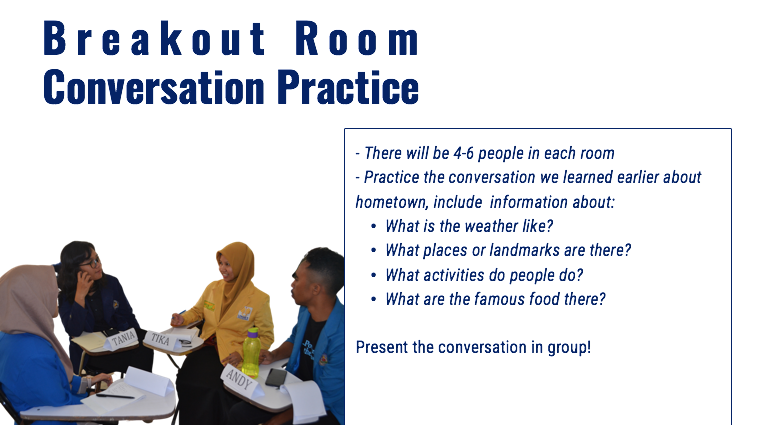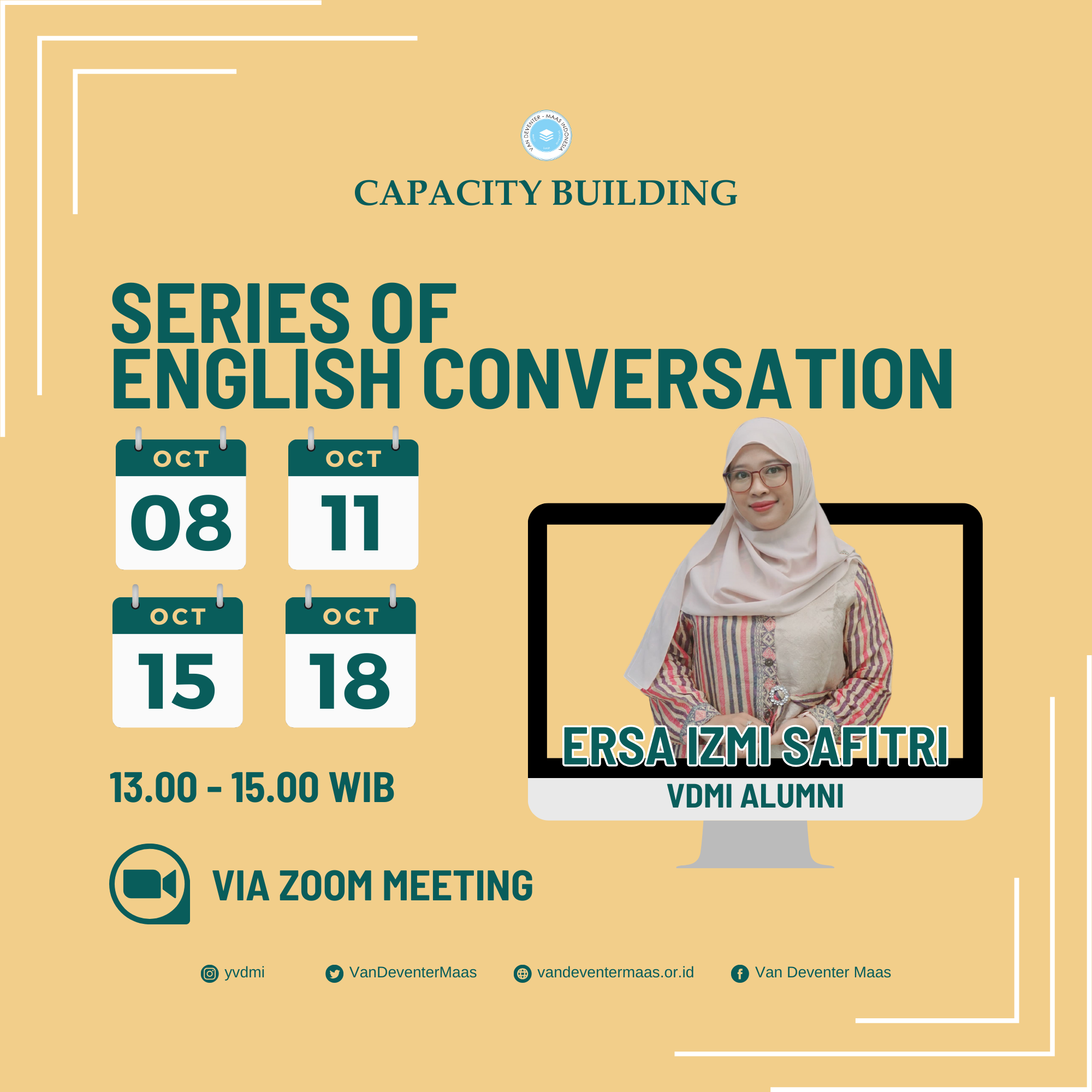Oct 2024 – Series of English Conversation
English language skills are now a necessity. However, in accordance with the Student Monitoring System, there are still many grantees who have problems in speaking English. Therefore, the program is particularly designed for VDMI grantees, who are university students to help them in preparing their undergraduate thesis and entering the professional environment in the next steps. VDMI held a Series of English Conversations with the theme ” Enjoyable Speak English – Essential English, Speak with Confidence.” every Tuesday and Friday, on: October 8, October 11, October 15, and October 18, 2024 at 01:00 to 03:00 PM via virtual meeting Zoom. The series was facilitated by Ersa Izmi Safitri, Alumna VDMS as beneficiary, from Swadaya Gunungjati University, Cirebon.
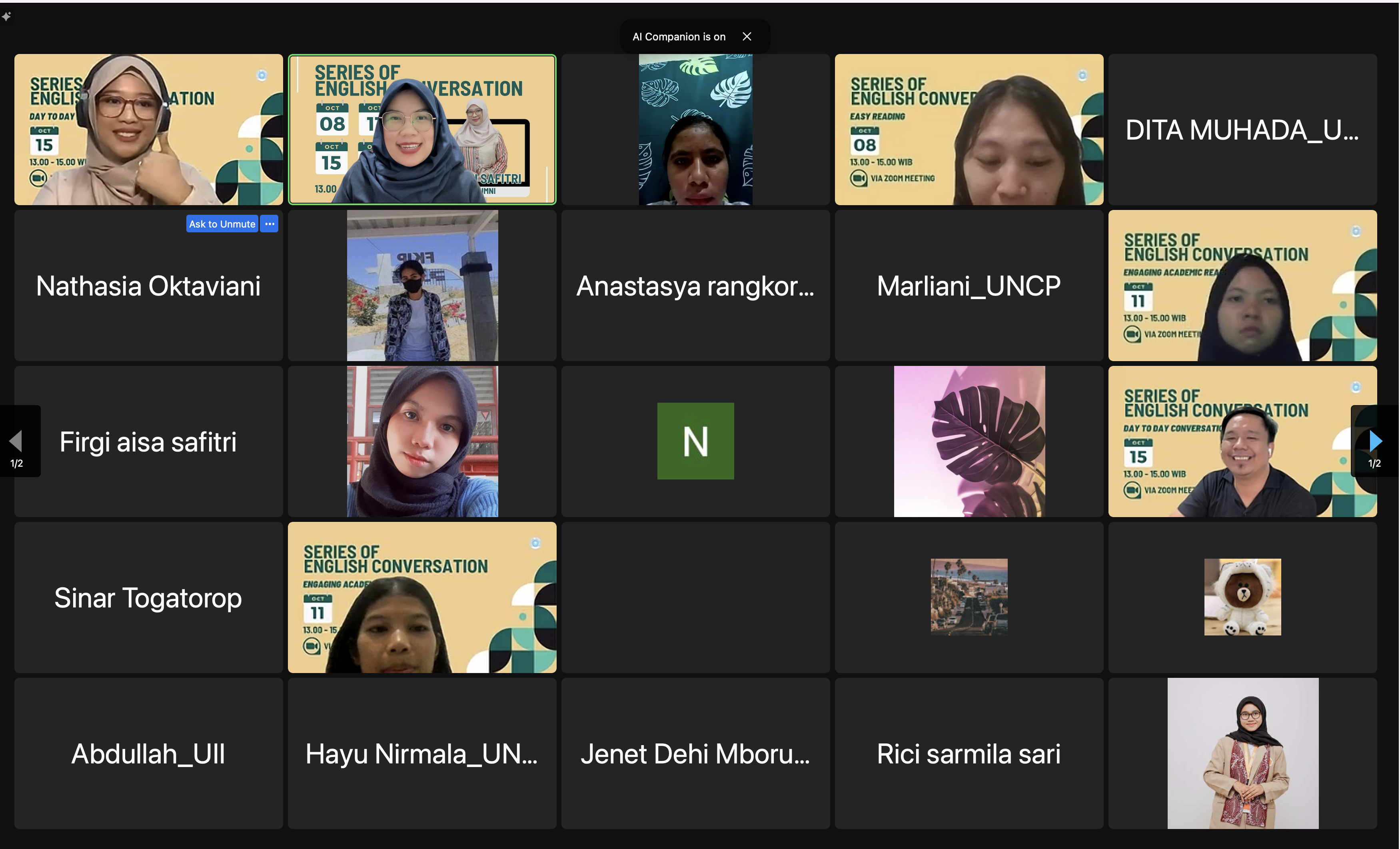 The beginning of online class starts with topic of Easy Reading – Grow Confidence, Expand Vocabulary, and Enjoy reading. Reading isn’t just words on page, it opens up new worlds, ideas, and possibilities. A casual reading improves language, communication, and critical thinking skills. If we want to be updated and increase our vocabulary, we have to find the articles or book pages and read it in English. Because if we translate the whole page into Indonesian language, it will take too long and sometimes have different meanings. There were more than 70 participants in the first meeting. Participants showed their interest in reading English texts, they shared their favorite books in the beginning of the class for introduction. In the reading practice, they showed their ability in understanding English text. In the last session, participants realized that reading comprehension was not as difficult as they initially thought.
The beginning of online class starts with topic of Easy Reading – Grow Confidence, Expand Vocabulary, and Enjoy reading. Reading isn’t just words on page, it opens up new worlds, ideas, and possibilities. A casual reading improves language, communication, and critical thinking skills. If we want to be updated and increase our vocabulary, we have to find the articles or book pages and read it in English. Because if we translate the whole page into Indonesian language, it will take too long and sometimes have different meanings. There were more than 70 participants in the first meeting. Participants showed their interest in reading English texts, they shared their favorite books in the beginning of the class for introduction. In the reading practice, they showed their ability in understanding English text. In the last session, participants realized that reading comprehension was not as difficult as they initially thought.
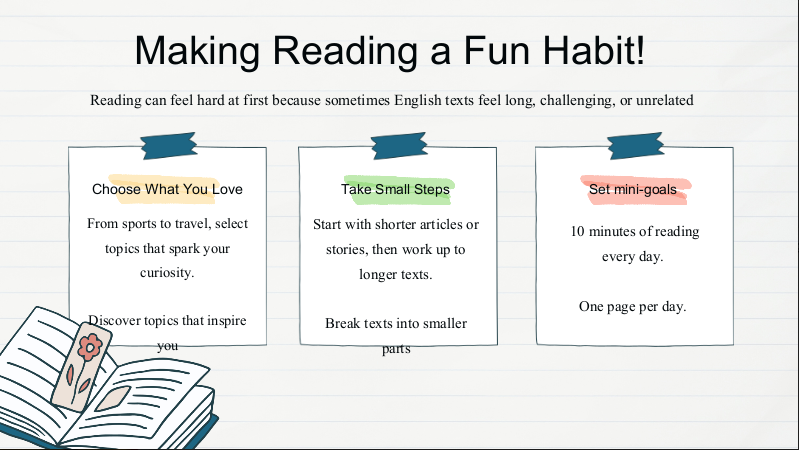
In the 2nd part, the session continues with how to understand academic texts such as research paper, literature review, essay and report. Academic reading skills are important for learners to do well. This type of reading goes beyond understanding, you have to “connect the dots” it can see from the title and outline. When we read the academic reading, we have to think critically, evaluate arguments, and put all together information from different sources. There were more than 60 participants. In menti apps, they shared their problems in understanding academic papers because of the sophisticated vocabulary. We discussed their difficulties, then it was later solved in the session of reading practice together. They also played the quizizz game in excitement, three participants, Sylvia, Ana and Sia became the top scorers in the game. How to read an academic peer effectively, we can start by making an abstract. Then we can create a purpose or objective of text, methods, results or findings, conclusion or implications, and keywords.
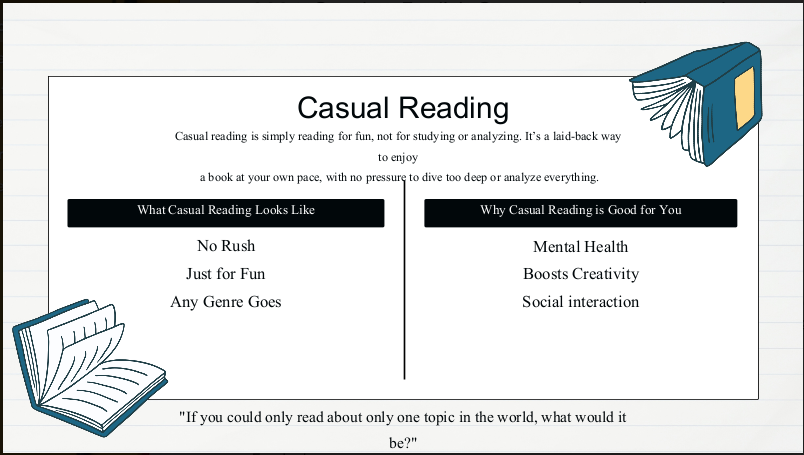
Continuing on the 3rd part, Facilitator begins the session with describing her hometown, Cirebon city. She used it as a sample to teach participants about description text. When we want to describe something, use Verb 1 and adjectives for making a descriptive text. We can identify the adjectives: Describe the city, the type of city, the weather, the historical background, atmosphere of life, the people behaviour, and colours + sounds We also create a Sensory of words: sense of touch and sight; savoury, tasty; Sense of sight; Sense of hearing. They enjoyed learning about various icons from across Indonesia such as Taplau and Mie Gomak. At the end of the lesson, they had a conversation about their hometown. Sinar talked about ambon, Dominica further explained the beauty of her hometown, Sumba, and Dita talked about the uniqueness of Pontianak with their iconic floating market and the mouthwatering signature food such as Choipan, Bubur Pedas, Roti Kaya.
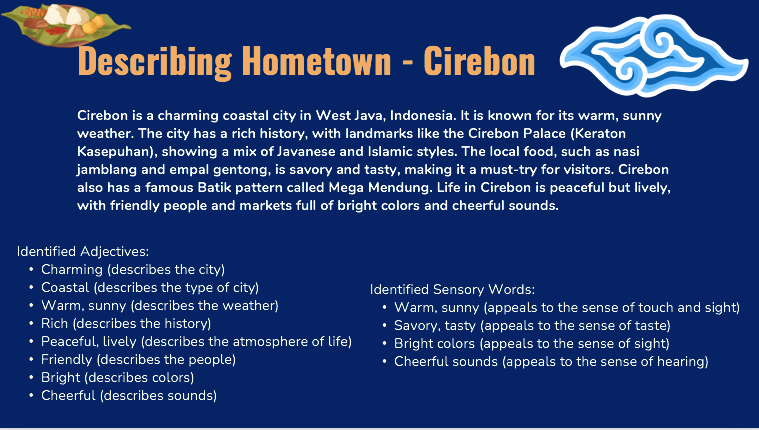
The final part, participants given a task to share a type of unforgettable experience has had the biggest impact on them ; experiences that the most remember vividly ; and unforgettable experiences. Lony Lakahina (UNIMOR) had a moment of kindness from a stranger. One day she brought a big bag and kinda struggled to open the door, then a stranger came to help her to open the door. Afifah Qonita (UNM) had an embarrassing or awkward moment. She was making a joke, but unfortunately nobody actually laughed. Tuah Marito (UNIMED) had a unique or rare event that doesn’t happen often. In the crowd she did something stupid accidentally, then people looked at her. How to create a structure of recount text we can start with the orientation; continue with Event and finish with Reorientation (optional). When we want to write an experience, use past tense (was, received, had, participated) for what already happened.
